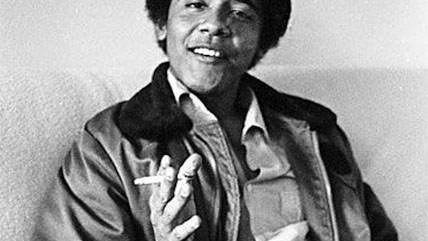Obama Is Right on Clemency for Non-Violent Drug Offenders
Conservatives have no good reason to caterwaul this time.

Last week, leading conservatives raised the alarm about yet another terrifying instance of "presidential lawlessness" from President Obama. What is it this time? New revelations of dragnet spying? Targeting more American citizens with flying robot assassins? Nope: He's going to let more nonviolent drug offenders out of prison.
On Wednesday, the Department of Justice announced new criteria for clemency petitions: they'll prioritize applications of "non-violent, low-level offenders" who would have received "a substantially lower sentence" under current law; have served at least 10 years; lack "a significant criminal history"; and "have no history of violence" before or during imprisonment.
"A gross abuse" of power, cries National Review's Andy McCarthy, "making a mockery of his core constitutional duty to execute the laws."
"This is lawlessness," Charles Krauthammer fumed on Fox News. "Why can't the president obey the Constitution?"
About that Constitution: Article II, section 2 gives the president "power to grant Reprieves and Pardons for Offences against the United States."
"The benign prerogative of mercy," the Supreme Court has said, "is unlimited except in cases of impeachment" and "cannot be fettered by any legislative restrictions."
I've never before felt compelled to defend Obama on a sweeping use of executive power, but he's on firm legal ground here—and, as even Krauthammer admits, the president has a point on the merits.
So what's all the conservative caterwauling about? For McCarthy, the clemency initiative represents the execution of Obama's whims: an illegitimate use of the pardon power by an administration that (allegedly) "does not like the federal narcotics laws." Channelling the Constitution's framers, Sen. Jeff Sessions, R-Ala., tells us they'd be appalled by this "alarming abuse of the pardon power," which they only intended "to be used on a limited, case-by-case basis."
But Obama is hardly the first president whose policy preferences have informed his use of the power. Upon taking office, Thomas Jefferson freed political dissenters convicted under the Sedition Act, which he deemed a "nullity as absolute and palpable as if Congress had ordered us to fall down and worship a golden Image." (It seems safe to say he didn't like the law.) Woodrow Wilson, whose veto of the National Prohibition (Volstead) Act was overridden by Congress, issued hundreds of pardons for alcohol-related offenses during his tenure.
It's true that the framers viewed the pardon power as a way to mitigate the criminal law's severity on "a case-by-case basis," lest, as Hamilton put it in Federalist No. 74, "justice …wear a countenance too sanguinary and cruel."
But the constitutional text doesn't limit the power's use to individual cases, and in the same essay, Hamilton argues that blanket pardons could help "restore the tranquility of the commonwealth" in cases of insurrection. That's how our first president used the power several years later, after putting down the Whiskey Rebellion. It is "consistent with the public good," Washington told Congress, "to mingle in the operations of Government every degree of moderation and tenderness which the national justice, dignity, and safety may permit."
Indeed, as law professors Charles Shanor and Marc Miller explain in a 2001 article, "at least a third of all United States presidents [starting with] the earliest administrations, have used systematic pardons," granting clemency to whole classes of offenders, groups as diverse as pirates, Confederate rebels, Mormon bigamists and wartime draft dodgers.
At more than a trillion dollars and incalculable human costs, our four-decade war on drugs has helped give us an incarceration rate that's unrivaled—and unenvied—in the Western world.
As professors Shanor and Miller note: "one of the most common uses of systematic pardons in U.S. history has been to heal the wounds of war at home."
This column originally appeared in the Washington Examiner.


Show Comments (38)